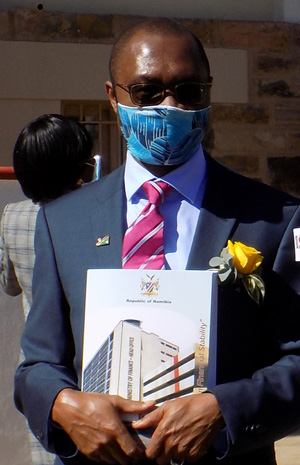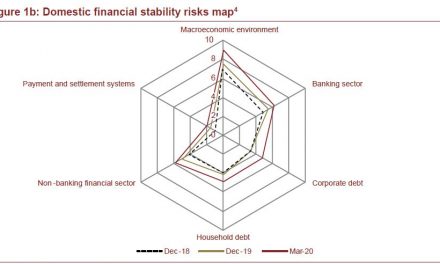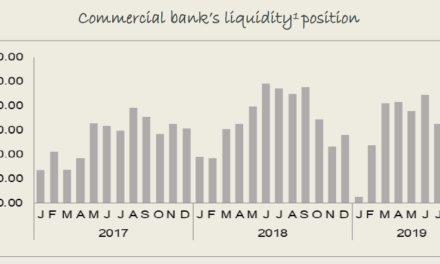
N$72.8 billion budget for 2020/21 financial year announced

The Minister of Finance, Iipumbu Shiimi on Wednesday tabled the national budget for the financial year 2020/21 totalling N$72.8 billion from N$66.5 billion budgeted in the 2019/20 financial year.
Shiimi in a budget statement said the single-year budget reflects the commensurate urgency of addressing the elevated once-off needs arising from the impact of COVID-19 pandemic.
The non-interest operational expenditure is budgeted at N$57.9 billion, 8.8% more than the previous year, reflecting accelerated funding needs to fight Covid-19, while the development budget amounts to N$6.4 billion, 8.4% more than the actual development budget spending in the previous year.
Given the weak revenue outlook, the budget deficit for the financial year 2020/21 is estimated at 12.5% of GDP, which is a once-off rise in the budget deficit, as government seeks to adequately respond to the challenges posed by Covid-19 on the economy and social strata.
“The budget deficit will be financed through a combination of own savings and domestic and external borrowing,” Shiimi said.
Taking into account the total financing requirements, Namibia’s debt stock is estimated to rise to N$117.5 billion, corresponding to 68.7% of GDP, from 54.8% estimated in the previous budget speech.
“Going forward, expenditure will have to be recalibrated to lower levels from the temporary Covid-19 induced peak so as to stabilize growth in public debt. These considerations would be integral to the fiscal policy stance for the Medium Term Expenditure Framework,” Shiimi said.
In terms of tax, Shiimi said government will not be introducing new taxes given the current state of event, adding however, those who earn above the tax threshold (N$50 000) or more per year, must pay commensurate tax irrespective of the type of economic activity from which they derive their income.
“This money is needed to pay for medicine, school books, construction and maintenance of roads and other critical public goods and services that the public enjoys,” the minister said.
Meanwhile, the previously announced proposal to disallow tax deductibility of royalties for mining entities is withdrawn while previously announced Income Tax and Value Added Tax proposals such as dividend tax for residents, taxation of trusts and subjecting income derived from commercial activities of charitable, religious, educational and other types of institutions under Section 16 of the Income Tax Act, introduction of VAT on income of listed asset managers, supply of sugar and mandatory requirement to issue tax invoices by VAT vendors are still under review.
Shiimi noted that the Income Tax Act proposals to repeal the provisions of the Export Processing Zone Act which deal with tax exemptions on corporate income tax and the phasing out of tax incentive for manufacturers and exporters of manufactured goods were passed by Parliament last year.
“The phasing out of these base-eroding tax exemptions will be replaced by the introduction of the Special Economic Zones. These changes are due for implementation starting this year, with grandfathering provisions,” Shiimi said.
Furthermore, in terms of the SACU Agreement and taking into account sales volumes and targets set for the total tax burdens on respective excisable commodities, the following increases, effective from 27 February 2020 are agreed in terms of the SACU Agreement that; a 340ml can of beer or cider will cost an extra 8c, a 750ml bottle of wine will cost an extra 14c, a 750ml bottle of sparkling wine will cost an extra 61c, a bottle of 750 ml spirits, including whisky, gin or vodka, will rise by N$2.89, a packet of 20 cigarettes will cost an extra 74c, a 25 gram of piped tobacco will cost 40c more, and a 23 gram cigar will cost an extra N$6.73.
Shiimi added that an emergency budget of N$727 million was front-loaded to the health sector, which the Ministry of Health and Social Services is making progress in executing.
The 2020/21 budget accords 49.5% of the N$64.2 billion non-interest expenditure to social sectors. For the current budget, the health ministry is allocated another N$7.95 billion, while the Ministry of Basic Education, Arts and Culture receives N$14.2 billion.
Jointly, a total of N$14.2 billion is allocated to the Economic and Infrastructure sectors, while a total of N$14.2 billion is allocated to the Economic and Infrastructure sectors. The Public Safety Sector takes up the third largest share of the budget allocations, totalling N$13.1 billion while the Administrative Sector receives the least allocation of N$4.5 billion.












































